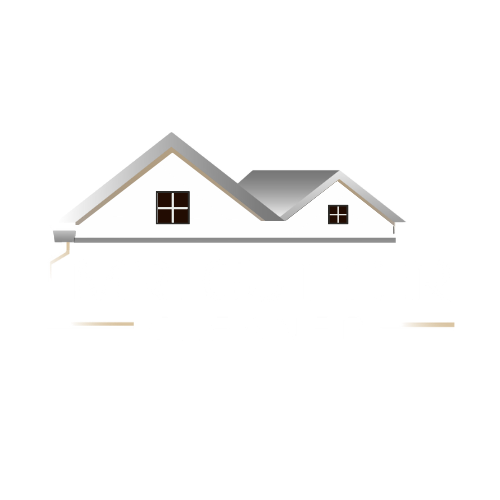Pressure washers, commonly used for home maintenance tasks, offer a powerful solution for cleaning gutters. However, their high-pressure spray poses significant risks, not just to the user but also to the property.
The intensity of the water jet can lead to personal injuries, including cuts and falls, especially when combined with ladder use.
Furthermore, this method can cause damage to gutters, roof tiles, and siding, undermining the structural integrity of the home.
Environmental issues from pressure washing include water waste and potential chemical misuse, affecting ecosystems and human health. Eco-friendly alternatives are advised to minimize impacts.
Despite these dangers, homeowners seek effective ways to maintain their gutters, driven by the desire to protect their homes from water damage and to ensure proper drainage.
Recognizing the risks and benefits of pressure washing is crucial for any homeowner considering this method for gutter cleaning.
Safe alternatives and best practices exist to mitigate these risks, emphasizing the need for informed decision-making in home maintenance.
What Are Pressure Washers?
Pressure washers are machines that use high-pressure water spray to remove loose paint, mold, grime, dust, mud, and dirt from surfaces and objects such as buildings, vehicles, and concrete surfaces.
They operate by pumping water at a high pressure, which allows for effective cleaning of hard-to-reach gutter areas without the need for physical scraping or scrubbing.
How Do Pressure Washers Work?
Pressure washers function by drawing water from a source, such as a tap, and then accelerating it through a pump powered either by electricity or gas. The pump increases the water’s pressure significantly before it is released through a narrow nozzle, creating a powerful stream capable of dislodging debris and dirt efficiently.
Types of Pressure Washers and Their Uses
There are mainly two types of pressure washers: electric and gas-powered. Electric pressure washers are quieter, lighter, and suitable for small, residential cleaning tasks, including gutters. Gas-powered models, on the other hand, are more powerful and used for larger, commercial cleaning jobs. The choice between these types depends on the scale of cleaning required and the specific needs of the homeowner.
Why Use Pressure Washers for Gutters?
Using pressure washers for gutters offers several compelling advantages. These devices effectively remove dirt, debris, and algae, making the cleaning process quicker and less labor-intensive than traditional methods. The high-pressure water stream can access hard-to-reach areas, ensuring a thorough clean without the need for manual scrubbing. This not only saves time but also minimizes the risk of damage to the gutters from excessive force. Consequently, pressure washing can enhance gutter functionality and contribute to the overall maintenance of a home’s exterior, making it a practical choice for gutter cleaning tasks.
Benefits of Using Pressure Washers on Gutters
Pressure washers offer a fast and efficient method for cleaning gutters, removing debris, mold, and algae with ease. The high-pressure stream reaches difficult areas without the need for physical entry, reducing the time and effort involved in gutter maintenance. Additionally, this method helps preserve gutter integrity by eliminating the need for harsh scrubbing, potentially extending the lifespan of the gutters.
Common Practices in Gutter Cleaning
Common gutter cleaning practices include manual removal of debris using hand tools, followed by flushing the gutters with a garden hose to clear out the remaining particles. For thorough cleaning, professionals may use specialized tools alongside pressure washers, ensuring gutters are free from obstructions and operate efficiently. Safety measures, such as using ladders securely and wearing protective gear, are paramount to prevent accidents during the cleaning process.
The Risks of Power Washing Your Gutters
Power washing gutters presents several risks that homeowners must consider. The high-pressure spray can lead to physical injuries, including lacerations and falls from destabilized ladders. Beyond personal harm, the intense pressure can damage property, denting gutters, stripping paint, and dislodging roof shingles, potentially causing water damage inside the home. Environmental concerns also arise from excessive water use and chemical runoff, which can harm local ecosystems. Given these risks, it’s crucial for homeowners to evaluate safer gutter cleaning methods that protect both.
Potential for Physical Injury
Using a pressure washer on gutters increases the risk of injury. The force can cause users to lose balance, especially when on a ladder, leading to falls. High-pressure water can also cause serious injuries if it contacts skin.
High-Pressure Water Injuries
Direct contact with high-pressure water can result in lacerations or puncture wounds, necessitating immediate medical attention.
Ladder Safety Concerns
The kickback from a pressure washer can destabilize a ladder. Ensuring ladder stability and using proper safety equipment are crucial to prevent falls.
Property Damage Risks
Power washing can damage your property. The intense water pressure can harm gutters, roof, and siding, leading to costly repairs.
Gutter Damage
Pressure washers can dent or dislodge gutters, affecting their functionality and appearance.
Roof and Siding Damage
High pressure can strip paint, damage shingles, and force water under siding, potentially leading to water damage inside the home.
Environmental and Health Hazards
Pressure washing can have environmental impacts and pose health risks, especially when chemicals are involved.
Water Usage and Environmental Impact
Pressure washing uses significant amounts of water, which can contribute to water waste and runoff, carrying pollutants into waterways.
Chemical Use in Pressure Washing
The use of chemicals can harm plants, animals, and pollute water sources. Selecting eco-friendly cleaning solutions is essential to minimize environmental impact.
Safe Alternatives to Pressure Washing Gutters
Exploring safe alternatives to pressure washing gutters is crucial for homeowners seeking to maintain their gutters without the associated risks.
Manual Gutter Cleaning Techniques
Manual cleaning is a highly effective and safe method for gutter maintenance. This approach involves using hand tools, such as gutter scoops and brushes, to remove debris. It allows for careful inspection of gutters and downspouts for any signs of damage or blockage. By employing ladders securely and wearing gloves for protection, homeowners can ensure their gutters are clean and well-maintained without the dangers posed by high-pressure water systems.
Low-Pressure Washing Systems
Low-pressure washing systems offer a middle ground, cleaning gutters effectively with significantly reduced risk of damage. These systems use a gentle water flow to remove debris and buildup, safeguarding the structural integrity of gutters and roofing materials. Low-pressure washers are particularly suitable for gutters made of materials that could be damaged by high-pressure washing, providing a thorough clean without the hazards.
Professional Gutter Cleaning Services
Hiring professional gutter cleaning services is another safe alternative. Professionals are equipped with the necessary tools and knowledge to clean gutters efficiently and safely. They can identify and address potential issues, such as minor repairs or adjustments that may not be apparent to the homeowner. Additionally, using professional services eliminates the risk of personal injury from falls or accidents, providing peace of mind along with clean and functional gutters.
Best Practices for Using a Pressure Washer
Employing a pressure washer for gutter cleaning requires adherence to best practices to mitigate risks and ensure safety.
Selecting the Right Pressure Washer
Choosing the appropriate pressure washer is critical. Homeowners should opt for a model that balances power and safety, ideally one with adjustable pressure settings to suit different cleaning tasks.
Electric models are recommended for residential use due to their adequate power and lower risk profile compared to gas-powered alternatives.
Protective Gear and Safety Measures
Wearing protective gear is non-negotiable. Safety goggles, gloves, and non-slip shoes protect against high-pressure water and debris.
Additionally, securing ladders and using them on stable, even ground minimizes the risk of falls. Ear protection is also advisable to guard against prolonged exposure to noise.
Techniques for Minimizing Risks
To minimize risks, start with the pressure washer on its lowest setting, gradually increasing pressure as needed. Direct the spray away from yourself and others, and never use a pressure washer while on a ladder due to the risk of recoil and imbalance. Cleaning should be done from the ground when possible, using extensions for hard-to-reach areas.
Understanding Your Gutters: Maintenance and Care
Maintaining your gutters is essential for protecting your home from water damage. Regular gutter maintenance ensures they function correctly, directing rainwater away from your home’s foundation, walls, and landscaping. This section covers key aspects of gutter maintenance and care to help homeowners keep their gutter systems in optimal condition.
Routine Gutter Maintenance Tips
Regular maintenance is key to extending the life of your gutters and preventing water damage to your home. Homeowners should clean gutters at least twice a year, in spring and fall, to remove leaves, twigs, and other debris. Inspecting gutters for signs of wear, such as rust, holes, or separations, is also crucial. Installing gutter guards can reduce the amount of debris that collects, minimizing maintenance needs.
Signs Your Gutters Need Attention
Several indicators suggest gutters need maintenance or repair. Water spilling over the sides during rainstorms, sagging or detached gutters, and visible staining on siding or the foundation are signs of clogged or damaged gutters. Peeling paint or rust on gutters also indicates that moisture is not being properly diverted.
When to Call a Professional
While some gutter maintenance tasks are manageable by homeowners, certain situations require professional attention. If gutters are high, hard to reach, or if the damage is extensive, it’s safer to hire a professional gutter cleaning service. Professionals have the necessary tools, safety equipment, and expertise to effectively address complex issues, ensuring gutters are properly maintained and functioning.
FAQs About Pressure Washing and Gutters
Addressing common questions about pressure washing and gutters provides homeowners with the knowledge needed to make informed decisions regarding their home maintenance.
Can Pressure Washing Increase Gutter Lifespan?
Pressure washing, when done correctly, can remove debris, mold, and algae that contribute to gutter deterioration, potentially increasing their lifespan. However, the technique must be applied carefully to avoid damage. High-pressure washing can harm gutters if the pressure is too intense, leading to dents or detachment. Therefore, while pressure washing can contribute to maintaining gutter health, it should be performed with caution or by professionals to ensure the benefits outweigh the risks.
How Often Should Gutters Be Cleaned?
Gutters should be cleaned at least twice a year, typically in the spring and fall, to prevent clogs and water damage. Homes surrounded by trees may require more frequent cleaning, as falling leaves and branches can quickly obstruct gutters. Regular inspections can help identify when additional cleaning is necessary, especially after storms or extreme weather events.
Is Pressure Washing Safe for All Types of Gutters?
Pressure washing is not safe for all types of gutters. Gutters made of aluminum or vinyl can be particularly susceptible to damage from high-pressure water. The force can cause warping, denting, or even detachment from the house. For these materials, low-pressure washing or manual cleaning methods are recommended. Homeowners should consider the material and condition of their gutters before deciding on pressure washing as a cleaning method.


